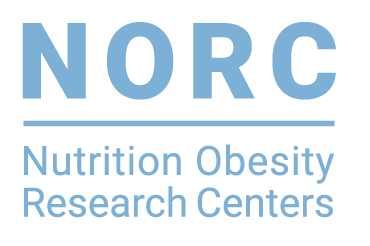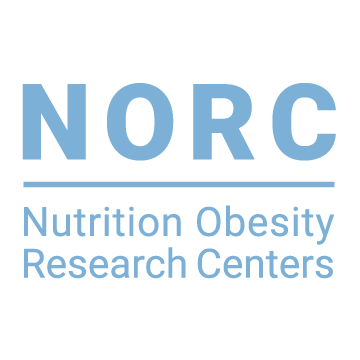Tag: University of North Carolina at Chapel Hill
BLOG – Hyperuricemia and Gout
Uric acid is a chemical that is created when the body breaks down purines (purines are building blocks of our DNA). Under normal conditions, uric acid dissolves in blood, is processed in the kidneys and excreted in urine. However, if the body makes too much uric acid or the kidneys are not able to clear enough of it, uric acid can accumulate in blood. High levels of uric acid (hyperuricemia) form crystals in the joints and kidneys and pose increased risk for gout, kidney and heart disease. Most of the uric acid in blood comes from foods and drinks. These … Read More »
Categories: Blogs Tags: University of North Carolina at Chapel HillUNC Introduces New Core Merging Nutrition and Genetics
The University of North Carolina at Chapel Hill’s Nutrition Obesity Research Center (NORC) introduces the new Nutrigenetics and Nutrigenomics (NGx) Core. Located at the UNC Nutrition Research Institute (NRI) on the NC Research Campus in Kannapolis, the goal of the NGx Core is to assist investigators in conducting nutrigenetics and nutrigenomics studies that lead to a better understanding of the interaction between lifestyle and genetics on health and disease. “We want to help investigators realize that neither nutrition nor genetics should be studied in isolation,” explained Saroja Voruganti, PhD, NGx director and Assistant Professor of Nutrition at the NRI. “Our … Read More »
Categories: Featured News, News Tags: University of North Carolina at Chapel HillGenetic Risk Factors for Some Diseases Tied to Uric Acid
Viva La Familia Nutritional Study We once thought of circulating uric acid levels as mainly a biomarker of kidney disease (or a very rich diet), but research over the past decade suggests that higher than normal levels of uric acid can, in fact, be a cause of some cardiovascular or chronic kidney diseases. Uric acid levels are strongly influenced by a person’s genetics and diet, so understanding genetic risk factors will help to identify who needs to be extra careful about what he or she eats. This is the focus of the Voruganti laboratory at the NRI, which applies nutrigenetics … Read More »
Categories: News, Publications Tags: University of North Carolina at Chapel HillBLOG – Childhood Obesity: A Major Health Concern
Obesity is a disease that impacts all levels of society. It is the most prevalent nutritional disorder among children and adolescents and is continuing to rise. In 2012 more than one-third of children and adolescents were overweight or obese. According to the Centers for Disease Control and Prevention (CDC), childhood obesity has more than doubled in children and quadrupled in adolescents over the past 30 years. Why is being overweight or obese such an issue? Obesity is considered a major health concern in developed countries: overweight children are at higher risk of becoming overweight adolescents, and overweight adolescents are at … Read More »
Categories: Blogs, Featured News Tags: University of North Carolina at Chapel HillDaily Sugar-Sweetened Beverage Intake Alters Human Brain and Behavior, Study Finds
Research shows that consuming too much sugar over time contributes to weight gain and obesity-related conditions such as Type 2 diabetes and cardiovascular diseases. So why do we keep going back for more, even when the risks are clear? In a unique experiment, Kyle Burger, PhD, assistant professor of nutrition at the UNC Gillings School of Global Public Health and director of UNC’s Neuropsychology of Ingestive Behavior Laboratory, examined the behavioral responses of 20 healthy-weight individuals to a sugar-sweetened beverage and beverage logos after the individuals had a daily drink of that beverage for three weeks. Burger’s research, published online Feb. 8 … Read More »
Categories: Featured News, News Tags: University of North Carolina at Chapel HillUNC Food for All Campus Lecture Series: Spring 2017 Call for Proposals
Are you engaged in exciting food-related research, teaching, and publication at UNC? Do you have an idea for an outstanding food-related lecturer (scholars, journalists, documentarians, community activists, food entrepreneurs, artisans, practitioners) to bring to campus? UNC-Chapel Hill’s Food for All (FFA) pan-university academic theme is sponsoring a multi-disciplinary food studies lecture series, and is seeking proposals from the university community. Micro-grants are available for speaker events with an expectation of cost-sharing between FFA and the co-sponsoring department, institute, or organization. Food for All is currently accepting proposals for speakers during the spring of 2017. Preference will be given to events that … Read More »
Categories: Featured News, Funding Tags: University of North Carolina at Chapel HillMom’s Diet Can Affect Development of Next Two Generations
Nutritional deficiencies during pregnancy can have lasting effects across generations that impact development not only of children, but also of grandchildren. These heritable effects are linked to epigenetic changes that influence gene expression but not DNA sequence. At the NRI, we seek to understand how nutrition affects health and why different people respond differently to the same nutrients. The Ideraabdullah laboratory is particularly interested in identifying epigenetic changes that are caused by nutrient deficiencies and understanding how an individual’s genetic makeup influences those particular epigenetic modifications. What they did: While maternal vitamin D deficiency is linked to negative health outcomes in … Read More »
Categories: News Tags: University of North Carolina at Chapel HillInaugural Short Course in Nutrigenetics, Nutrigenomics and Precision Nutrition
The inaugural course in Nutrigenetics, Nutrigenomics and Precision Nutrition was held at the UNC Nutrition Research Institute in Kannapolis, May 23-26. This workshop-style educational course featured 16 expert-led presentations on a variety of topics including “Nutrition and Epigenetics” and “MicroRNA and Metabolic Profiling.” Attendees also participated in hands-on sessions where they learned to analyze and interpret genetic data using PLINK, Harvard’s open-source, whole-genome association analysis software toolset. This non-credit short course was attended by 96 participants from 6 countries and 29 states, including graduate students, health professionals and nutrition scientists from academia and industry. Presenters included professors from the Nutrition, … Read More »
Categories: News Tags: University of North Carolina at Chapel HillCombination of Obesity and a Common Human Infection May Increase Anxiety Levels
Anxiety and anxiety-related disorders are the most common mental health problem in the United States, with obese people having higher rates of anxiety than non-obese people. Data from a recent study reveal that this increased anxiety may be caused by an interaction between obesity and a very common human infection, which results in immunological changes in the brain. Patricia Sheridan, PhD, research assistant professor of nutrition at the UNC Gillings School of Global Public Health, has worked for years to determine how diet alters inflammatory processes in the brain. As the senior author of the study “Diet-induced obesity prolongs neuroinflammation … Read More »
Categories: News, Publications Tags: University of North Carolina at Chapel HillValidity and Reliability of a 4-Compartment Body Composition Model
Abstract Body volume (BV), one component of a four-compartment (4C) body composition model, is commonly assessed using air displacement plethysmography (BodPod). However, dual-energy x-ray absorptiometry (DEXA) has been proposed as an alternative method for calculating BV. This investigation evaluated the validity and reliability of DEXA-derived BV measurement and a DEXA-derived 4C model (DEXA-4C) for percent body fat (%BF), fat mass (FM), and lean mass (LM). Using a total sample of 127 men and women, a traditional 4C body composition reference assessment was completed. A DEXA-4C model was created by linearly regressing BodPod BV with DEXA FM, LM, and bone mineral … Read More »
Categories: Publications Tags: University of North Carolina at Chapel Hill
